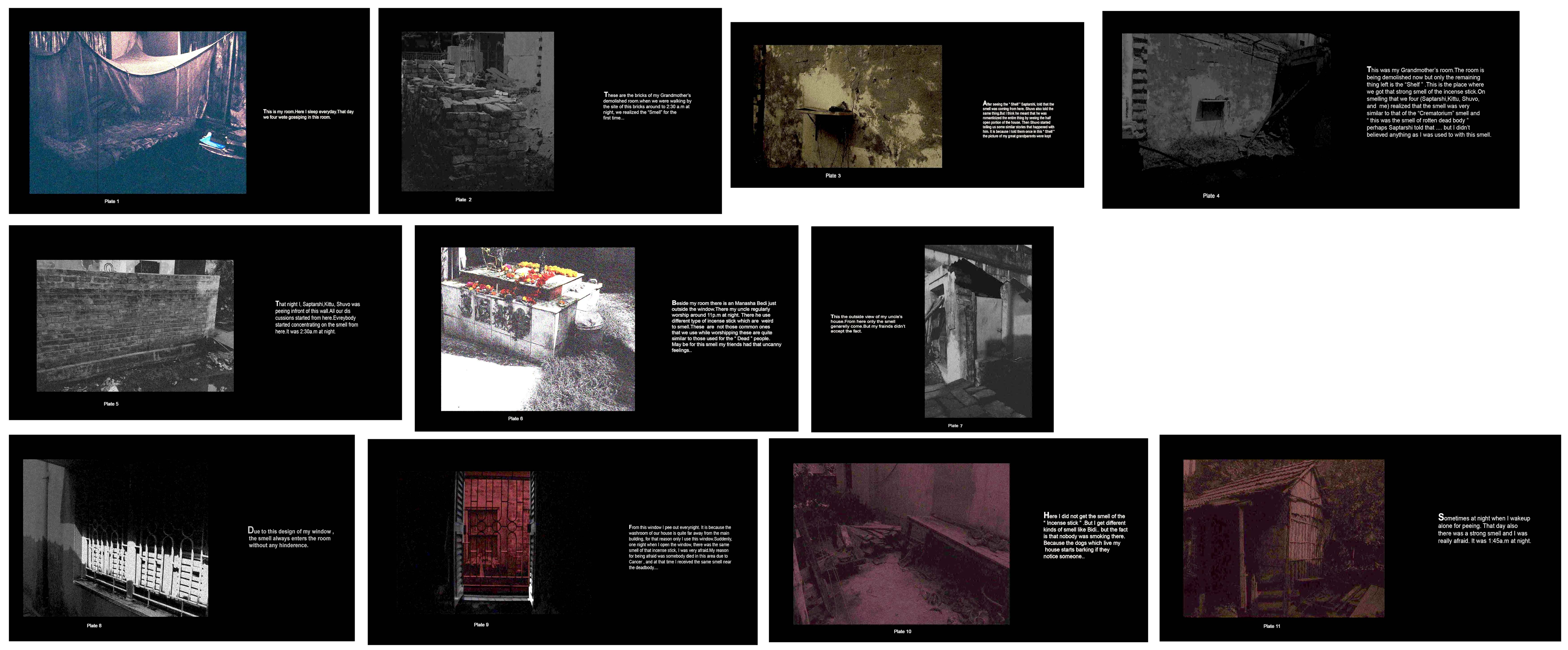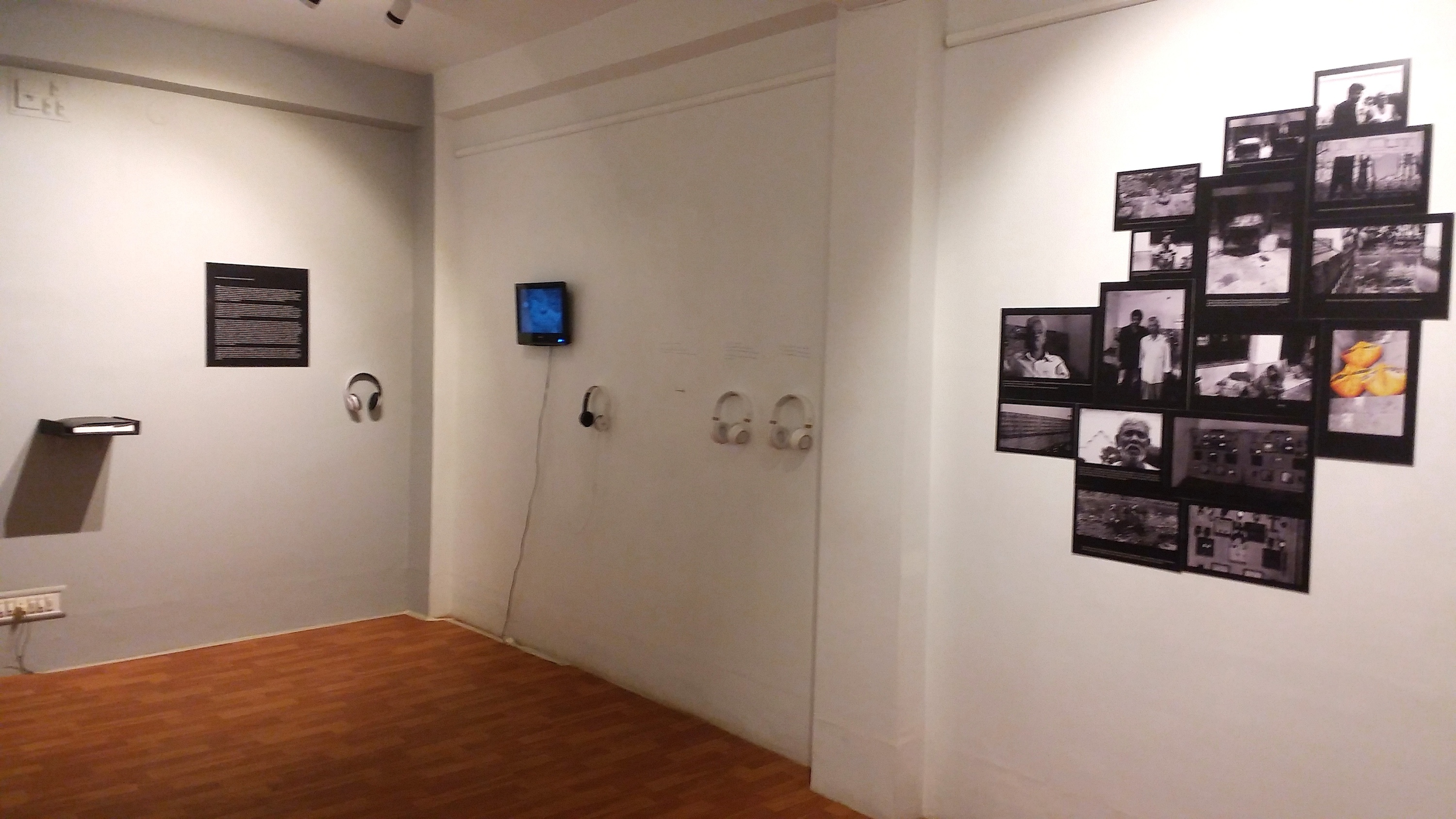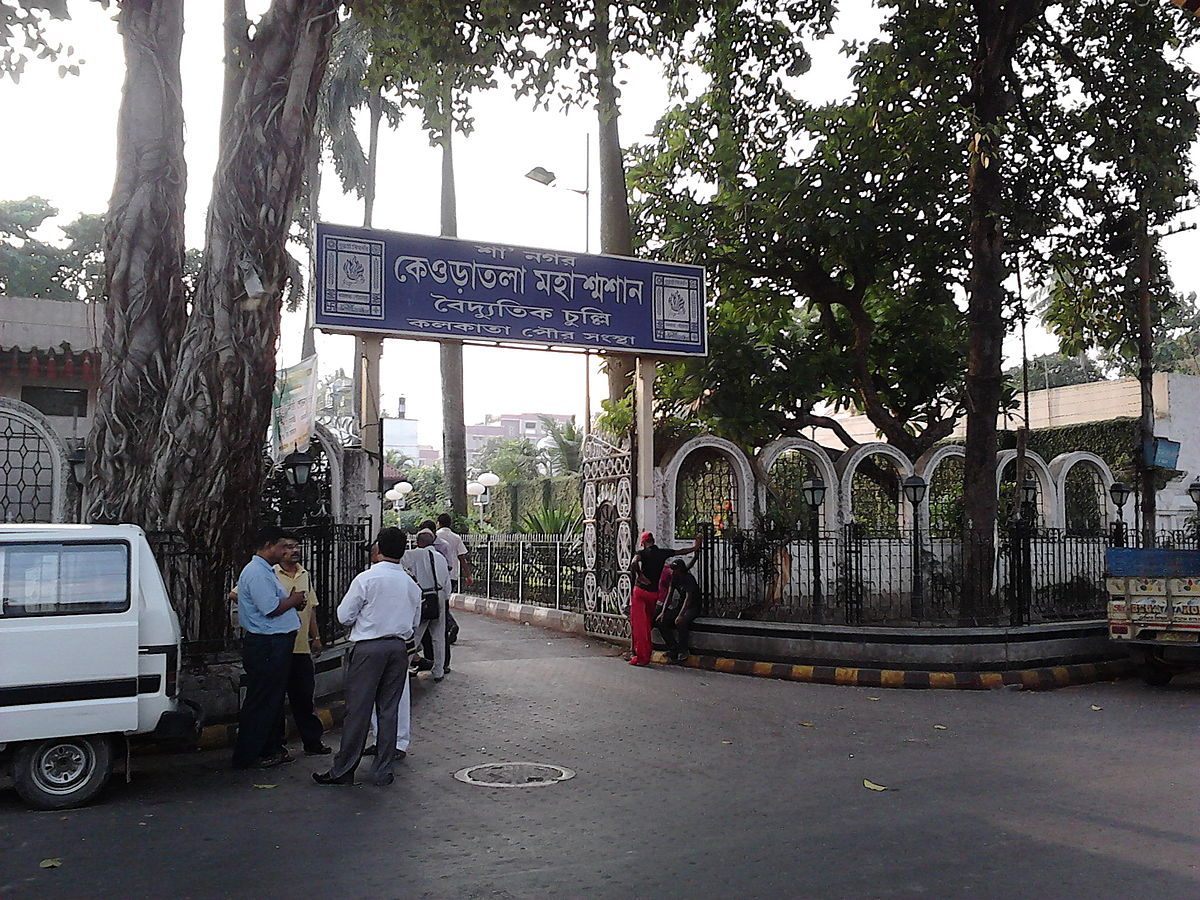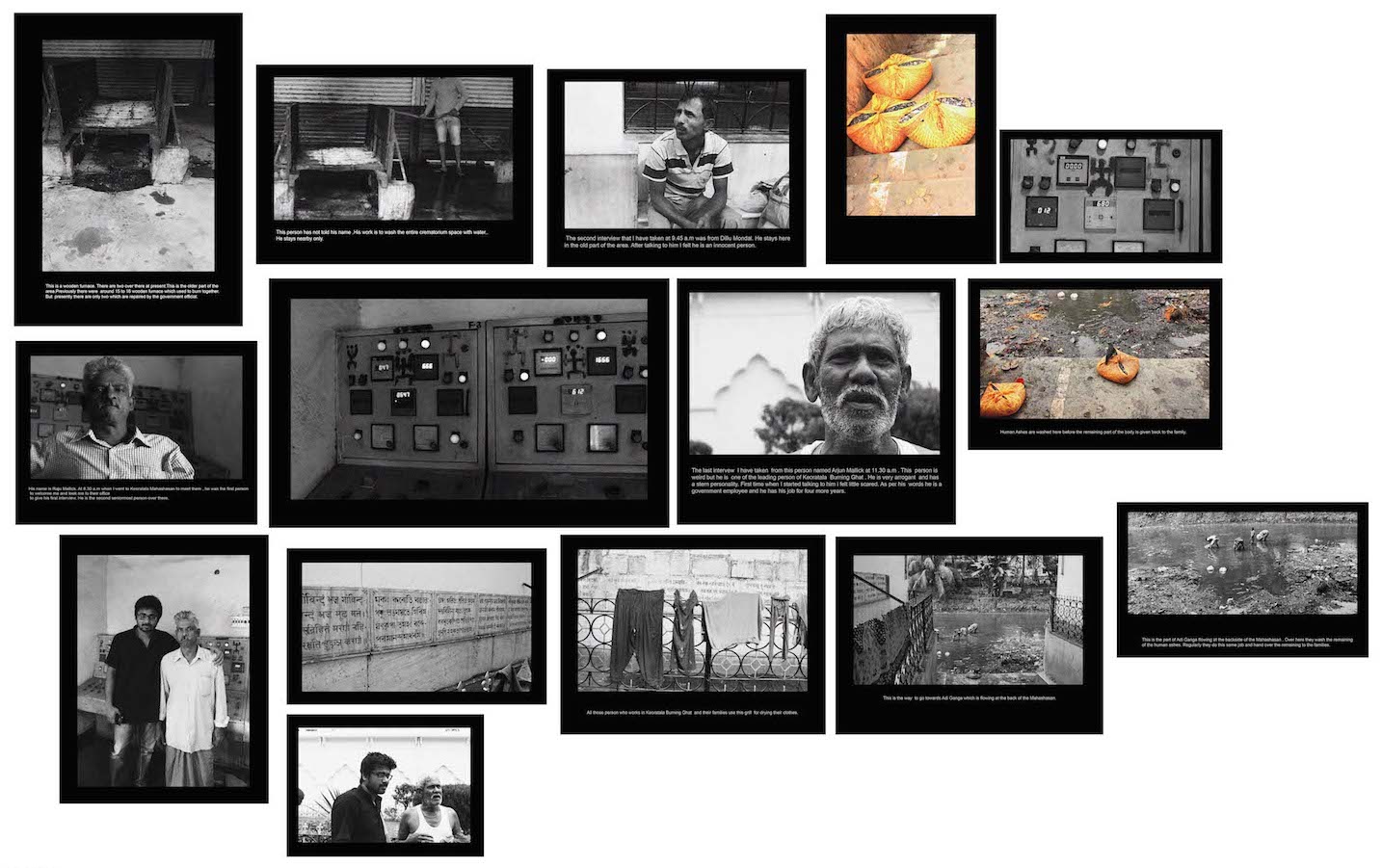‘SYNAESTHESIS’ – Episode 4 of ‘RACONTEURS’ | Kolkata, India
'SYNAESTHESIS' is Prasanta Ghosh's contribution to the Group Visual Arts Project 'RACONTEURS', which recently ended at the A.M. Studio in Kolkata, India. Here he addresses death in relation to privacy, or the loss-there-of, and the life of those whose job is to deal with death on a daily basis.
Dead People Do Not Have Any Privacy:

‘Privacy is the ability of an individual or group to seclude themselves, or information about themselves,
and thereby express themselves selectively. The boundaries and content of what is considered private differ
among cultures and individuals, but share common themes. When something is private to a person,
it usually means that something is inherently special or sensitive to them. The domain of privacy partially
overlaps security (confidentiality), which can include the concepts of appropriate use, as well as
protection of information. Privacy may also take the form of bodily integrity.’ (Wikipedia)
In this work I have developed a story by translating my experiences, personal encounters and incidents going down the memory lanes. This work is a reflection of an incident, which I encountered personally. At that point in time many questions were in my mind: as soon as people die, do they lose all their privacy? Or does anybody get permission to access their privacy? I do not believe in the life after death, but the person standing beside me may believe in it. This work can therefore also be seen as the reflection of the thoughts of the person beside me.

The source of this work is a personal experience in a crematorium. Some days back one of my relatives passed away. We took her to the crematorium. There she was laid down on a wooden panel, which is commonly used. In the next step, her corpse would be put inside the furnace.
Experiencing the details of this event left a huge impact in my mind. This relative of mine was a private person. Her privacy was protected within the boundaries of her family. But on that fateful day, her husband was lamenting and disclosing many private memories regarding her life in front of all those who were present at the crematorium. I was staring at him blankly and could not even utter a single word. Then suddenly something stroke my mind, and I was wondering if just because she was dead, her privacy was there no more?

I thought to look deep into the matter, so I went around to hear the conversations of many other family members who were present at the event just described, and I realized that, yes, it was the same conversation happening all around: family members, relatives and friends talking about all the different interests and private memories of the person whom they had lost. How strange……
I have conceptualized the story as the thought of the person next to me who believes in life after death. The word ‘PRIVACY’ is used here in the context that whatever the dead people are doing after their death, nothing is concealed of their private lives, which seemed to happen when they were alive. Maybe after death the reconstruction of their lives changes, and a new series of life seems to develop. In this story it is seen that the dead people have got the license to go anywhere in between people and in their private space.
Who takes care of dead bodies?
I believe that walking through a crematorium is really a tough thing to do for each and every human being. Throughout the air is always a heavy hearted feeling. I think that this is the only place where no humans will come by their choice. But is this true for everyone? I don’t think so. There are many such people among us who go there by choice and do all the needful duties that a crematorium requires, in spite of being marginalized from the so called ‘civilized society’.

I went to Keoratala crematorium the day I was working on my book ‘Dead people does not have any privacy…’ in order to explore the place more, and to meet the people who work there. While talking to the crematorium workers, I found that many of the things I felt are really ‘unsaid’, not spoken of. I asked some questions to them, to understand the psychological aspect of that job, but when they replied to my questions I became aware of many more things which I felt were important.
I asked whether dealing regularly with so many dead bodies affected their mind, and I was surprised to hear their answer, that except in particular cases, the dead bodies do no affect them. They are habituated to regularly deal with it, and the dead bodies have become non-living objects for them. They spoke about the history of the place, spoke about their job, spoke about their identity and how this identity distinguishes and separates them from the so called ‘civilized society’. They spoke about their families, spoke about their activities of regular life.

I think that many of us in our society are unaware of the things that the crematorium workers talked about, of the words that they spoke. Maybe people do not take interest in their lives as they are marginalized from the rest of society and are considered in the same category as that of the stray animal on the road. On hearing the words of Raju Mallick, who said that they do not have any emotions left with them and everything has dried out from within their soul, I realized that they would like to live a normal life, but they are bound by their duties. Sometimes I wonder if they are really living, or being bound by society to live as they do, with constant burning smell all around. Some of them see this work as their needful duty, but for some it has become a curse of their life. After our conversations I realized how strange that those people who used to curse them while living, those same people are being handled by them when they are dead.